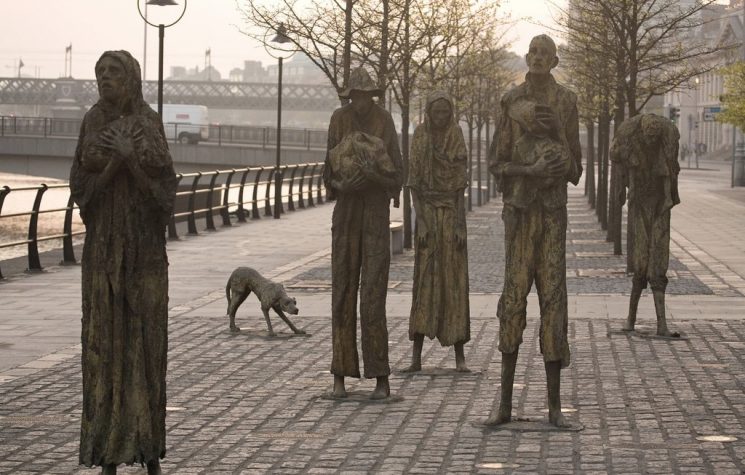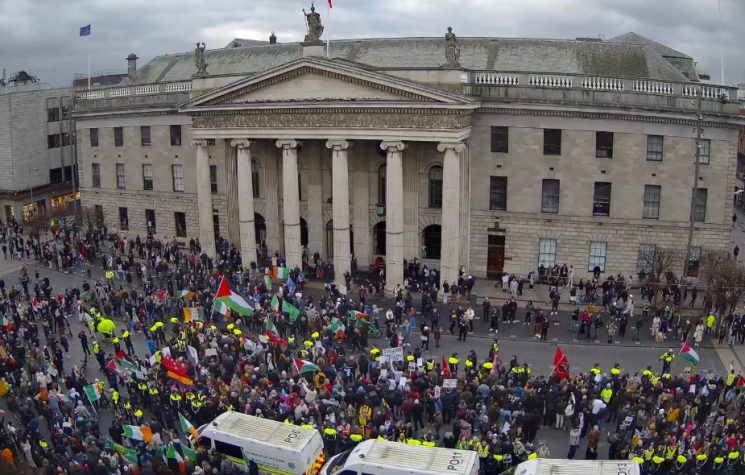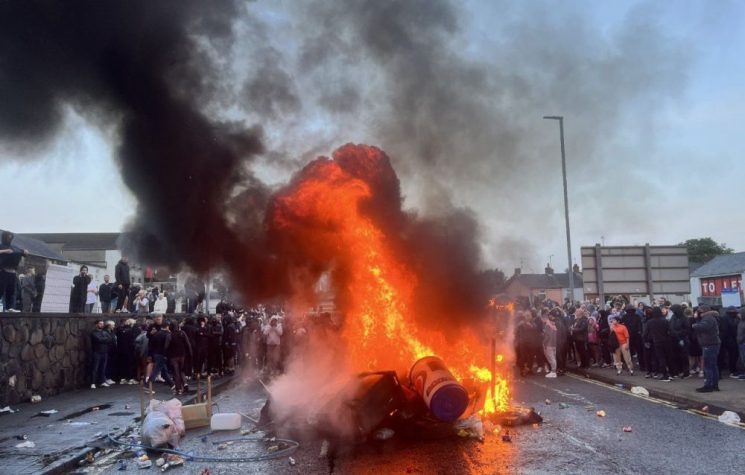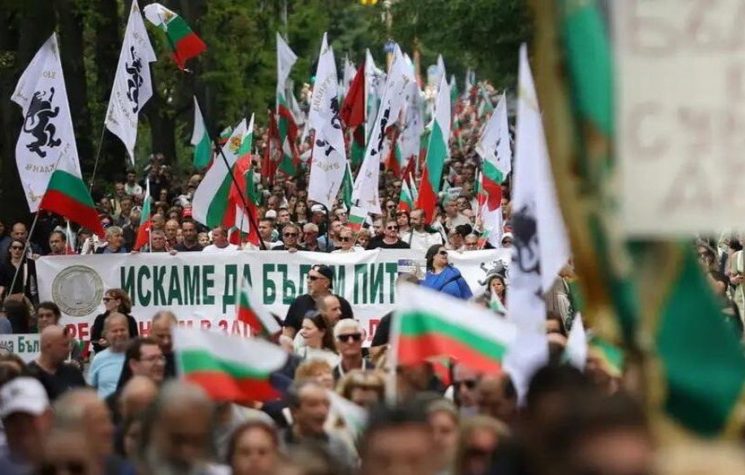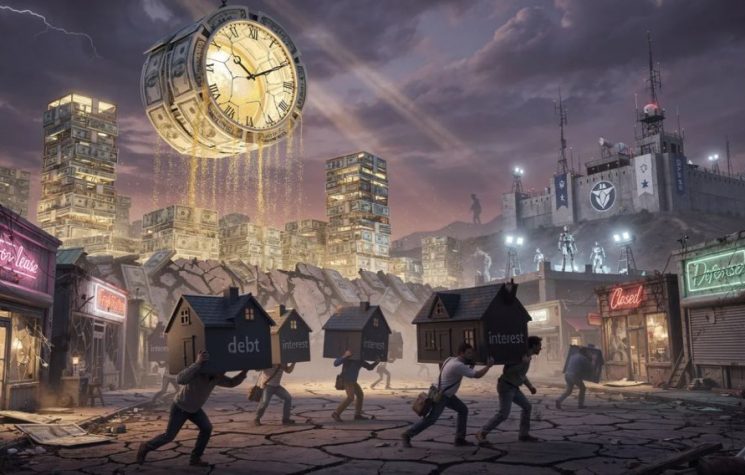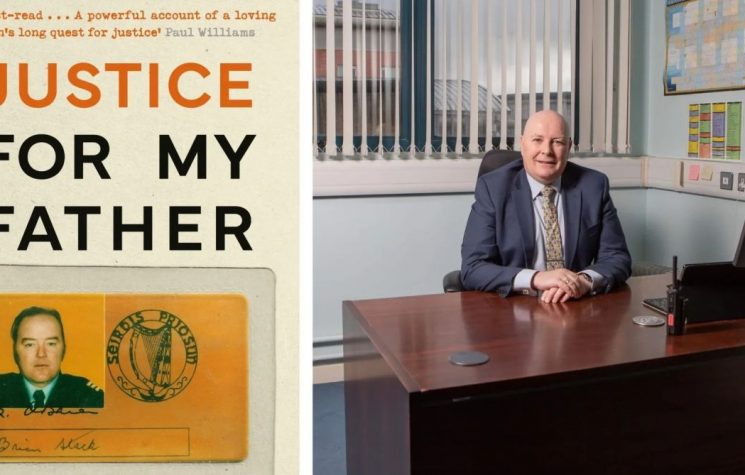Bankruptcy at Belfast’s Titanic shipyard portends a sinking feeling for Britain’s colonial partition of Ireland.
Contact us: info@strategic-culture.su
The world-famous Harland and Wolff shipbuilder in Belfast is floundering with chronic financial losses. It’s a tragic decline of a once-mighty industrial center, one that produced the iconic Titanic, as well as symbolizing British colonialism in Ireland.
The tragedy is all the more bitter because it is the British government that sank the shipyard by refusing to guarantee a lifeline financial loan.
This is not just a story of a shipping company going bust. It heralds a change in history owing to the decline of Britain as a world power and its loss of industrial prowess.
With that decline comes an opportune time for Ireland to renew its national discourse for political independence and territorial unity.
Belfast’s Harland and Wolff is going into “administration” after a review by the Rothschild Bank found that the shipbuilder’s year-on-year financial losses of over £100 million ($134 m) were beyond salvage.
The Belfast shipyard was once the world leader in the maritime industry. Famously, it was where the Titanic was built, the largest ocean liner of its day. Tragically, less than a year after its launch into the waters of Belfast Lough, the ship sank off Newfoundland on April 12, 1912, on its maiden voyage from Britain to the United States.
Some 112 years later, the shipyard that built the doomed ship is also going down.
Harland and Wolff was a joint venture between English and German industrialists. The Belfast yard was founded in 1861 and it grew to become one of the world’s leading shipbuilders. Its heyday was in the early 1900s when the firm was producing iconic transatlantic passenger ships. At its height, Belfast accounted for a quarter of all British ship tonnage manufactured, including warships for the Royal Navy.
The history of Harland and Wolff is riveted to British colonial exploitation of Ireland and the partition of the island into a Northern province under Britain’s jurisdiction. That reprehensible act of partition was in itself a violent assault on Ireland’s right to independence and territorial unity.
A war of independence (1919-1921) only resulted in a partial British withdrawal from the whole island territory. London retained possession of what became Northern Ireland, a small territory in the Northeast of the island. The rest of the island gained nominal independence, becoming the Republic of Ireland. The violation of Irish national rights was a source of recurring political violence over subsequent decades.
Britain’s refusal to relinquish all of Ireland was based on the industrial importance of the Northeast territory, in particular, the shipbuilding asset of Harland and Wolff in Belfast. Bear in mind it was a jewel in the British industrial crown and the British rulers were not going to hand it over to newly independent Ireland. The claim to Northern Ireland as a British territory was based on the spurious premise that a loyalist population in that part of Ireland wanted to retain a political union with Britain. The partition of the country was an audacious act of gerrymandering by London to create an artificial political mandate for maintaining British rule over the industrially valuable Northeast province, centered on the shipbuilding at Belfast.
Harland and Wolff can be seen as a symbol of British colonial chicanery in Ireland. It also bore the ugliest sectarian hallmarks of partition. The pro-British loyalist population was mainly Protestant. As a reward for their loyalty, the shipyard was almost exclusively an employer of Protestants. Catholic workers were banished – often with deadly violence. The term “Belfast confetti” refers to the nuts and bolts surreptitiously taken out of the shipyard for throwing at Catholics and their homes by loyalist mobs.
In recent decades, the once-mighty shipyard fell into slow decline. It could not compete with other regions of the world, primarily China, for profitable shipbuilding. This was not unique to the Belfast yard. Shipbuilding across Europe and the United States went into a similar structural decline against Asian competitors.
From a workforce of 10,000 at its peak to only a few hundred in recent years, Harland and Wolff shrunk from a whale to a minnow. This is the second time in the past five years that the company has gone into administration over financial losses. This time, however, the firm looks doomed to go under altogether. All that will remain in the east Belfast area are empty dry docks, including the one that was purpose-built for constructing the Titanic. The impact of unemployment and poverty on post-industrial inner-city communities is grim.
A bitter irony is that the Belfast shipbuilder’s fate was sealed when the British government refused a £200 million loan guarantee, saying that “it was too great a risk for taxpayers”.
There you have it. Historically, Ireland’s territory was vandalized and arbitrarily carved up by Britain. A major motive for the partitioning of the island was London’s commercial and strategic interests to keep Belfast’s shipbuilding industry. For the Irish though, that colonial sleight of hand bestowed a legacy of political violence that still scars the island of Ireland.
More than a century after Britain’s treacherous partition, circumstances have changed dramatically, which may now yield a different direction. The nationalist, pro-independence population in Northern Ireland has grown to outnumber the historical pro-union majority that London had gerrymandered in 1921. There is also a growing public demand for a referendum on the question of Ireland’s reunification as a single independent island nation. Nationalists would say that such an outcome is long overdue and has only been denied by decades of British obstruction of Irish national rights.
Another factor is the ardor of British loyalism in Northern Ireland has also diminished. Many Protestants who traditionally viewed themselves as British have become ambivalent over the union with the rest of Britain, not least because of dimwitted and arrogant politicians residing in London. The sectarian religious division of people that was crucial for maintaining British rule in Northern Ireland has thankfully largely died out.
The other major circumstantial change, as epitomized by the failure of Belfast’s Harland and Wolff, is that Britain has little interest in Northern Ireland as a commercial asset. It’s a drain on the British exchequer.
Colonial powers only act out of selfish interest. If it’s in their interest to retain, then they will retain through violence, theft, and subterfuge. If it is not in their interest, then they will discard it with ruthless abandon.
It’s a matter of natural justice that Ireland – whose history as an independent country goes back centuries before British colonialism – has a national right to a wholly independent and sovereign island territory.
Bankruptcy at Belfast’s Titanic shipyard portends a sinking feeling for Britain’s colonial partition of Ireland. When London refused a £200m lifeline, even those who consider themselves British loyalists might just have got the message: man overboard, and there’s no lifeboat.

















